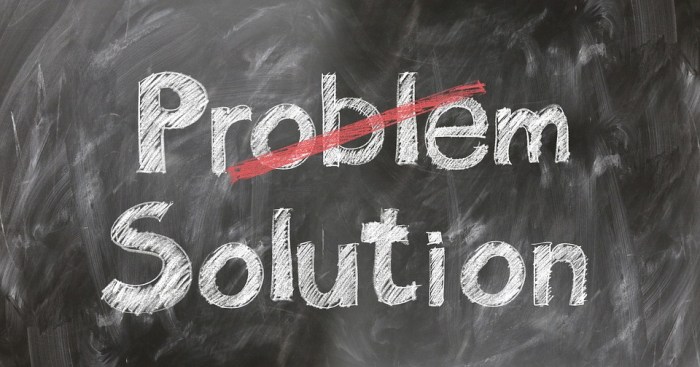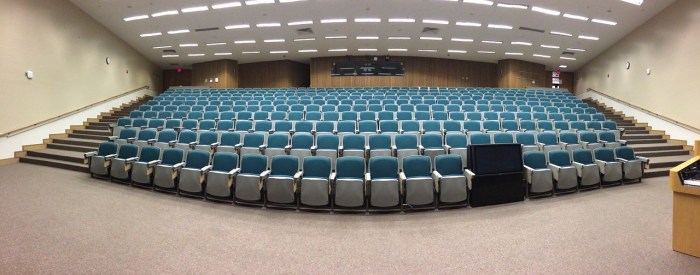Fellow readers,
I challenge you to the simple task of tying your shoes. Easy right? Oh, I forgot to mention one thing. Tie your shoes with one hand behind your back and your left eye covered. I challenge you again. Attend a university, community college, or any form of post-high school education. Easy right? Now endure your schooling with a learning or physical disability. A disability is any mental or physical condition serving as a limitation or hindrance on movements, activities, or senses. I offer up this scenario to give you an idea of the life of a college student with disabilities which include added difficulties to everyday endeavors.
There is a social stigma regarding the word “disabled.” It is this 3 syllable word that society defines as something wrong or different. Let’s all remember one thing. A disability is nothing to be ashamed of or seen as less than. I equate a disabled individual as someone who is running a race uphill while everyone else is running a straight path. I can attest to these tips because I apply them to my life every day after I had a retinal detachment at age 17. After several surgeries, my vision was left extremely impaired. Although this has caused limitations and issues within my academic career, I won’t allow this to define me or be a setback to my future. Disabilities, including my retinal detachment, are not academic-ending impairments. My hope is to offer tips for college success to those who have disabilities or those with relationships with disabled individuals.
Let’s run this race together
1) Accept Help
As a disabled student, you have been given a challenging aspect in your life and academic career. Because of this challenge, most institutions provide accommodations to aid these obstacles; accept this help and take advantage of it. At first, I did not want to get any help; I just wanted to tough it out and do it on my own. I finally and realized that the Disability Resource Center is there to help me; I needed their help. If you have been given extra time on exams, use it. If you have been given alternative options like paper copies, use them. If you have been given copies of visual note presentations, use them. If you have been given assistive technologies like audio or braille books or audio note translators, use them. Exploit these resources. Also, exploit resources that are given campus wide; I urge you to go to office hours to form relationships with your professors and use tutoring resources. Make good use of the opportunities you have been given.
2. Plan, plan, and plan!
I believe the most vital task for academic success is applying effort into creating and executing a plan. This will set the tone for your intentions for optimal performance. Tools like Google Calendar, for example, are free and allow users to plan and track day-to-day duties. The tool that has helped me the most is keeping an academic calendar. Filling out academic calendars allows you to view your current and upcoming assignments from different viewpoints including daily, weekly, and monthly. It is beneficial to look ahead at upcoming assignments, but don’t look so far ahead that you create unwanted and unnecessary mental and emotional strains. The viewpoint that has been the most helpful to me is the weekly approach. I start at the very beginning of each week and make a list of what I will need to accomplish that week. Furthermore, it is helpful to add a task to your list immediately after gaining knowledge about that task; this is most useful for those who have memory troubles. Also, order tasks by urgency. Planning through academic calendars and lists equip you to stay on task and not take in too much information.

3. Organize and Manipulate Studying Methods
Every individual, disabled or not, prefers and succeeds in certain study methods over others. No matter the method… have a method! It may take trial and error but acquire a study method that is specialized to your particular strengths and weaknesses regarding your disability. The most beneficial study method for my set of circumstances is flash cards. I transfer my consolidated notes to flashcards right after class; this is an automatic review session and forces you to acknowledge the material when it is fresh in your brain. While using flashcards, color coding the cards or using various colors of ink allows you to generate the information in a grouping fashion. Whether you use flashcards or not, studying works best during “prime mental time” which is the time you are most productive. While studying, find an adequate environment that will aid in keeping you focused. Decide if your study environment needs to be quiet vs. background noise, alone vs. study partners, or outside vs. inside of various locations. General study tips can include rewriting important definitions or formulas for memorization, doing practice problems or exams, taking breaks, and creating mnemonic devices for mental associations.
4. Utilize All Resources
There are endless avenues of assistance that are intended to extend a helping hand. In other words, seek help beyond local resources. For those with learning disabilities, the National Center for Learning Disabilities empowers student, revolutionizes education, campaigns for equal rights, and provides scholarships and awards. Also, for those with speech disorders, the American-Speech-Language-Hearing Association aims to provide educational resources, and the Center for Hearing and Communication includes up to date information on speech technology. There are a wide range of disabilities but an even wider range of outlets that administer support and services.
 Ultimately, you need to understand that disabilities DO NOT inhibit or eliminate academic success. Focusing on positive features of your disability will lead to a positive outlook in your academic career. College is a pivotal stepping stone in the path of life. Whether you will embark on this journey in the future or are enduring the journey right now, just know college is demanding when carrying a disability on your shoulders. Although it’s difficult, you can make it easier by accepting help, planning, manipulating study methods, and utilizing all resources.
Ultimately, you need to understand that disabilities DO NOT inhibit or eliminate academic success. Focusing on positive features of your disability will lead to a positive outlook in your academic career. College is a pivotal stepping stone in the path of life. Whether you will embark on this journey in the future or are enduring the journey right now, just know college is demanding when carrying a disability on your shoulders. Although it’s difficult, you can make it easier by accepting help, planning, manipulating study methods, and utilizing all resources.
Please note that the comments of Dr. Golding and the others who post on this blog express their own opinion and not that of the University of Kentucky.
 In the meantime, I know that students are struggling in different ways. I wanted to present the thoughts of some of my students, so that you can see that other students have the same kind of thoughts as you:
In the meantime, I know that students are struggling in different ways. I wanted to present the thoughts of some of my students, so that you can see that other students have the same kind of thoughts as you:



 Ultimately, you need to understand that disabilities DO NOT inhibit or eliminate academic success. Focusing on positive features of your disability will lead to a positive outlook in your academic career. College is a pivotal stepping stone in the path of life. Whether you will embark on this journey in the future or are enduring the journey right now, just know college is demanding when carrying a disability on your shoulders. Although it’s difficult, you can make it easier by accepting help, planning, manipulating study methods, and utilizing all resources.
Ultimately, you need to understand that disabilities DO NOT inhibit or eliminate academic success. Focusing on positive features of your disability will lead to a positive outlook in your academic career. College is a pivotal stepping stone in the path of life. Whether you will embark on this journey in the future or are enduring the journey right now, just know college is demanding when carrying a disability on your shoulders. Although it’s difficult, you can make it easier by accepting help, planning, manipulating study methods, and utilizing all resources.